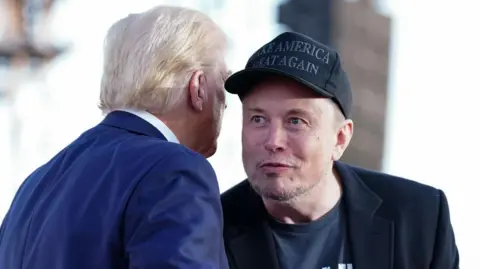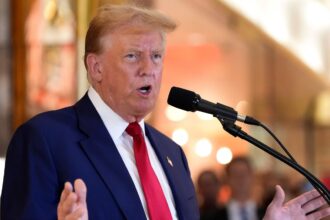Donald Trump has consistently voiced his opposition to the electric vehicle (EV) mandate championed by President Joe Biden. As the new president-elect, his stance could reshape the EV market, with significant implications for Tesla, led by his associate Elon Musk.
Trump has described Biden’s EV push as “outlandish” and “cruel,” citing concerns about its impact on traditional automotive jobs and consumer freedom. One of his key targets is the $7,500
R137,934.82 EV tax credit introduced during Biden’s term. Trump has hinted at eliminating this incentive, arguing that it unfairly tilts the market in favor of electric vehicles over petrol-powered cars.
What Could Happen if the EV Tax Credit Ends?
The $7,500
R137,934.82 tax credit plays a vital role in making EVs more affordable to the average consumer. Its removal could discourage buyers from choosing electric over gas-powered cars, potentially slowing the overall adoption of EVs in the U.S. Without the credit, traditional automakers like Ford and GM may find less financial motivation to produce electric models, possibly refocusing on internal combustion engines.
However, this policy shift might paradoxically work in Tesla’s favor. Tesla no longer qualifies for the tax credit, as the program’s cap limits credits to automakers who have sold fewer than 200,000 EVs. Without the credit in play, Tesla’s vehicles might appear more competitive since other brands wouldn’t have the subsidy advantage.
A Mixed Outlook for the Industry
While Tesla might see a competitive boost in the short term, the industry’s broader move toward EVs could face a setback. Major automakers have invested heavily in electric models, spurred by government incentives and climate policies. If those incentives vanish under Trump’s administration, the pace of EV innovation and infrastructure development in the U.S. could falter.
Trump’s Influence and Musk’s Strategy
Elon Musk has historically balanced his political alliances and business strategies carefully. Though Musk and Trump have maintained a cordial relationship, Musk has also been a vocal proponent of green energy initiatives. The coming years could see Tesla adopting aggressive pricing or introducing new models to adapt to potential policy changes.
In summary, Trump’s policies might upend the EV market, challenging competitors more reliant on tax credits while possibly bolstering Tesla’s standing. As this story unfolds, it will be essential to monitor how these political decisions affect global trends in EV adoption and sustainability.












